Now in its 11th year, the Urban Nomad Film Festival rolls into town on Thursday next week.
This year’s theme is “art, creativity and design” and the event’s roster of 11 feature-length documentaries and films focus on topics ranging from an ornery RV salesman to the world’s best-known sans serif typeface. Four to six independent short films selected from a pool of about 300 submissions will also be screened each night. Two nights focus on Chinese artist Ai Weiwei (艾未未). The festival was planned well before Ai’s detainment by Chinese authorities earlier this month, but his arrest makes the two documentaries that will be screened especially topical.
The organizers of Urban Nomad decided on this year’s theme in part because of the Taiwanese government’s increasing focus on the “cultural and creative” industries.
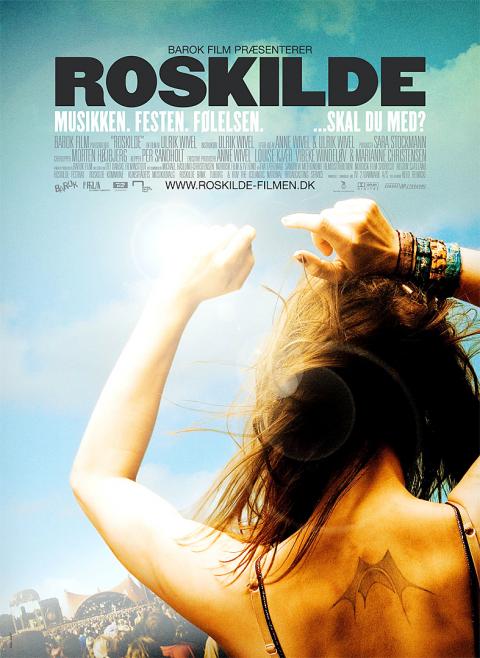
Photo Courtesy of URBAN NOMAD
“The number of art and design students here is enormous. We know that because we get a lot of their films for our program,” founder David Frazier told the Taipei Times. “But nobody has ever really done a focused segment on films about contemporary art and design.”
The festival kicks off on Thursday next week with Oddsac, a “visual album” by video artist Danny Perez and experimental rock band Animal Collective. Perez will be on hand to answer questions after the 54-minute-long film, which pairs 13 songs with mesmerizing visuals.
Along with a performance by Brooklyn-based tribal-freakout band I.U.D., Perez will deejay at Urban Nomad’s Video Mindfuck party on April 30 at Huashan 1914 Culture Park.
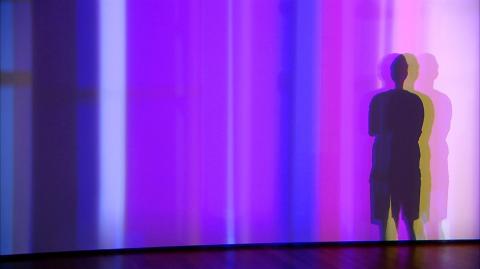
Photo Courtesy of URBAN NOMAD
The festival’s official opening film is 2009’s Winnebago Man, a documentary directed by Ben Steinbauer about one of the first viral videos ever made. Outtakes from a 1988 RV commercial shoot featuring a foul-mouthed salesman with a short fuse circulated on VHS tapes before eventually enjoying a second life online. Obsessed with the clips, Steinbauer tracked down salesman Jack Rebney at his California home. The film will have its Taiwanese premiere at Urban Nomad on April 29.
“It was a viral video before the Internet and it’s kind of impossible to say that technology does not influence art right now,” Frazier says.
Viewers can get insight into Ai’s work as a political activist on May 1 with Why Are These Flowers Red? (花兒為什麼這樣紅) by activist, professor and director Ai Xiaoming (艾曉明). The film documents the beating that Ai received from police during a trip to Sichuan Province to testify at the trial of fellow activist Tan Zuoren (譚作人), who was arrested for subversion after setting up a database of children who died in the 2008 Sichuan Earthquake.
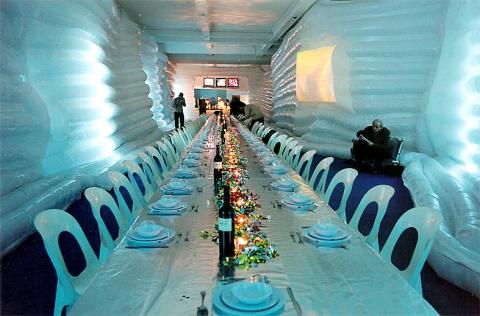
hoto Courtesy of URBAN NOMAD
On May 8, Ai’s own account of his confrontation with government authorities in Sichuan Province, Lao Mao Ti Hua (老媽蹄花) will be shown. A video conference with Ai was originally scheduled to follow the screening; Urban Nomad now plans to have a chat with a member of Ai’s studio instead.
“Ai’s activism is very much in a different direction from a lot of his art or a lot of what is exhibited in museums,” Frazier says. “With the solo show [of Ai’s work] scheduled to be held at the Taipei Fine Arts Museum at the end of this year, we felt it was important to show these films in Taiwan so his political content would not be whitewashed or left out.”
Other films about artists in Urban Nomad include In a Dream about American folk artist Isaiah Zagar; Olafur Eliasson: Space is Process, which follows the Danish contemporary artist to extreme environments like Arctic glaciers; and Beautiful Losers, which is about the NYC artists collective that incubated talents like Shepard Fairey and Twist (real name Barry McGee). Helvetica, a 2007 film by Gary Hustwit, focuses on the ubiquitous sans serif font and its impact on graphic design.
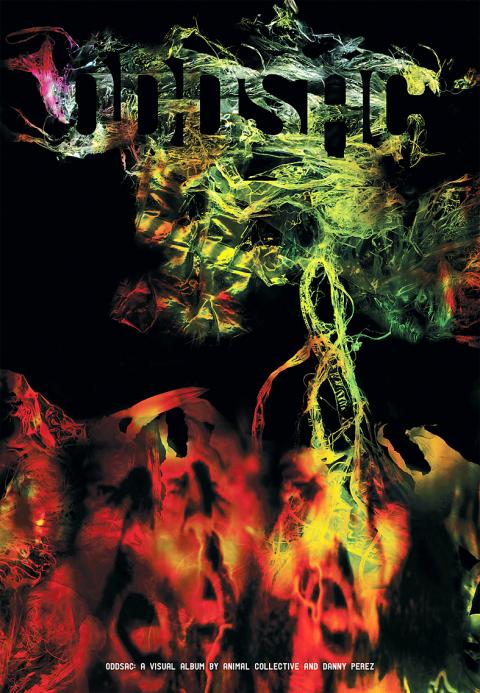
Photo Courtesy of URBAN NOMAD
Other topics include Roskilde, northern Europe’s largest rock music festival whose combustive mixture of rock ’n’ roll, drugs, sex and mud is chronicled in the documentary of the same name, and skateboarding, represented by Macho Taildrop, which is about an amateur skateboarder whose dreams of turning pro are stymied by cutthroat competition and training.
Urban Nomad closes on May 8 with Aaron Hose’s Voices in the Clouds. Released last year, the film tells the story of Tony Coolidge, who was born in the US to a Taiwanese woman and an American GI father he never met. After his mother’s death, Coolidge traveled to Taiwan, where he discovered that his family members were members of the Atayal Aboriginal tribe. The film not only documents Coolidge’s self-discovery but also offers an up-close look at the Atayal’s culture and struggles with oppression.
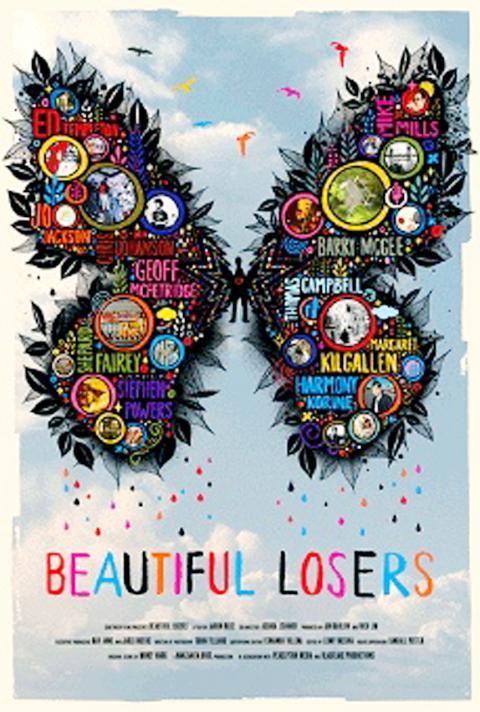
Photo Courtesy of URBAN NOMAD

Google unveiled an artificial intelligence tool Wednesday that its scientists said would help unravel the mysteries of the human genome — and could one day lead to new treatments for diseases. The deep learning model AlphaGenome was hailed by outside researchers as a “breakthrough” that would let scientists study and even simulate the roots of difficult-to-treat genetic diseases. While the first complete map of the human genome in 2003 “gave us the book of life, reading it remained a challenge,” Pushmeet Kohli, vice president of research at Google DeepMind, told journalists. “We have the text,” he said, which is a sequence of

On a harsh winter afternoon last month, 2,000 protesters marched and chanted slogans such as “CCP out” and “Korea for Koreans” in Seoul’s popular Gangnam District. Participants — mostly students — wore caps printed with the Chinese characters for “exterminate communism” (滅共) and held banners reading “Heaven will destroy the Chinese Communist Party” (天滅中共). During the march, Park Jun-young, the leader of the protest organizer “Free University,” a conservative youth movement, who was on a hunger strike, collapsed after delivering a speech in sub-zero temperatures and was later hospitalized. Several protesters shaved their heads at the end of the demonstration. A

Every now and then, even hardcore hikers like to sleep in, leave the heavy gear at home and just enjoy a relaxed half-day stroll in the mountains: no cold, no steep uphills, no pressure to walk a certain distance in a day. In the winter, the mild climate and lower elevations of the forests in Taiwan’s far south offer a number of easy escapes like this. A prime example is the river above Mudan Reservoir (牡丹水庫): with shallow water, gentle current, abundant wildlife and a complete lack of tourists, this walk is accessible to nearly everyone but still feels quite remote.

In August of 1949 American journalist Darrell Berrigan toured occupied Formosa and on Aug. 13 published “Should We Grab Formosa?” in the Saturday Evening Post. Berrigan, cataloguing the numerous horrors of corruption and looting the occupying Republic of China (ROC) was inflicting on the locals, advocated outright annexation of Taiwan by the US. He contended the islanders would welcome that. Berrigan also observed that the islanders were planning another revolt, and wrote of their “island nationalism.” The US position on Taiwan was well known there, and islanders, he said, had told him of US official statements that Taiwan had not